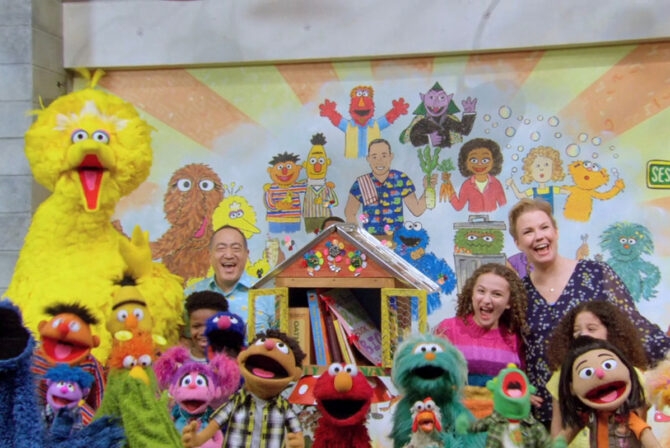What’s the difference between a Hebrew school, a Sunday school, a synagogue school, a supplementary school, and a religious school? Sometimes quite a bit, and sometimes nothing at all. Generally speaking, an afternoon Jewish educational program is housed in a synagogue and teaches a wide variety of subjects, ranging from Hebrew and prayer to holidays and values.
The name may give a clue as to what kind of program it is, but it may not. Hebrew schools may emphasize Hebrew, but sometimes simply use the name. Sunday school is a bit of a dated term, from years ago when Sunday was the only day of instruction. Most schools now meet either on Sunday and a weekday or just on weekday afternoons. Today the term “religious school” is often used; many find this to be the preferred title because it encompasses a broader approach to Jewish learning and living.
Does the Program Suit Your Family?
Often parents will choose a program “in spite” of some major issue or conflict. Examine the requirements of the school (in every grade) to make sure that it is a good match for your family. Choose a Hebrew school that doesn’t conflict with your child’s schedule or your family’s schedule. What if attending Shabbat services is a requirement but you are often out of town on weekends? What if you want a two-day program and not a three -program?
School requirements should mesh with your family’s needs and should support your goals for your child’s education. Is the synagogue located far away from your home, or close by in your neighborhood? If your child has particular learning needs or particular interests, find out if the school can accommodate these needs. One of the surest ways to guarantee your child’s success in Hebrew school is to make sure that it’s a good fit. Your family is unique–choose the program that is your best match.
 Take a Tour
Take a Tour
Schedule a tour of the school and visit some classes. You can tell the most about a program by visiting it during school hours. Do things seem to be running smoothly? Are the classrooms cheerful? Is the space appropriate for learning? Are the students happy and engaged?
A good program will “feel” good when you’re in the building. Remember that not all religious school programs are in spaces built to be schools–some may meet in nursery school classrooms, libraries, sanctuaries, or even offices. Students studying in these settings should still be actively engaged in exciting, meaningful, and stimulating learning.
Do Your Homework
Ask other parents or the education director about the school’s curriculum. Many parents discover in retrospect that the curriculum of a Hebrew school doesn’t particularly suit their needs. For instance, parents may be eager to have a child become proficient in Modern Hebrew, but the school emphasizes liturgical Hebrew. Other schools emphasize prayer and participation in Shabbat services over other areas of study.
Hebrew schools are limited by time, and often must “leave out” some areas of study in order to help students become literate in other subjects. This is not a bad thing–on the contrary, it allows teachers and students to focus their attention on areas in which students can develop deeper knowledge. Look at the curriculum and make sure it addresses your particular family’s needs.
Who’s in Charge?
The educational leadership and teaching faculty make a school what it is. A good school will have a clearly articulated educational vision and a director or principal who guides the program and sets the agenda for change and growth. Meet with the education director and ask her to share her vision for the school. Don’t hesitate to come prepared with questions; discuss any anxieties you may have about the process and what it will take to make the experience a positive one for your child and your family. Learn a bit about the faculty and even ask to take a look at textbooks and other materials. Taking some time to meet with the head of the school will help you to get to know the school more intimately, and let you know if you’re making the right choice.
Involved Parents
The Shema prayer teaches us v’shinantam l’vaneha, you shall teach the words of Torah to your children. The obligation of providing a child with a Jewish education rests on the shoulders of the parents. While you may not want to teach in your child’s Hebrew school, you should find out how parents are involved in the school.
Is there an active School or Education Committee? Are parents invited and encouraged to volunteer? Does the synagogue community rely on lay leadership? Parents should be actively involved in the governance of the school, in planning and executing programs, and in the life of the community. This doesn’t mean that you need to get involved right away, but it opens the door for you to participate in your child’s education at some later date.
Other Amenities
A Jewish education is not a stand-alone experience. Generally, schools are part of synagogue communities that offer a wide variety of programming. Are you looking for anything else? Families who regularly attend Shabbat services may be interested in children’s services. You may be eager to be a part of a regular davening (prayer) community and want to join the morning minyan. Are you interested in learning with your child? Find out if the synagogue or school offers family education programs where you can learn side-by-side with your child. Many adults are also seeking stimulating learning opportunities for themselves–does the congregation offer workshops and courses designed with adult learners in mind? And don’t forget: you may not be able to take advantage of these additional amenities now, but you may want them later on.
Making the Decision
In the end, the choice is yours. Choosing a religious school program for your child is a true commitment, spiritually as well as financially. For the relationship to be successful, both parents and school leaders must be partners in the child’s education and commit to that partnership from the moment the child enters the school until he or she graduates. The entire undertaking is, however, a very personal one, and should be reflective of who you are, and who your child is, and the dreams and aspirations you have for your family. The fit should feel just right.







